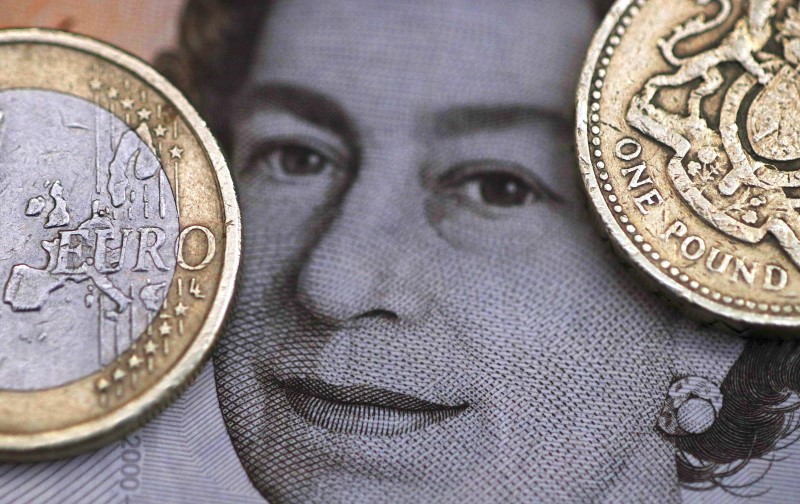By Noriyuki Hirata
TOKYO (Reuters) - Japanese retail investors, collectively nicknamed Mrs Watanabe, are building huge positions in pound sterling and may be among the first victims of market turmoil should Britain vote to leave the European Union next week.
Polls close at 10 pm UK time on June 23 and vote counting will go through the British night, meaning Japanese investors will be among the first in the world to react next Friday and help set the tone for other markets.
With the market so unbalanced in favour of long sterling positions, a "Leave" vote could trigger automatic stop-loss orders en masse, driving steep falls and large swings in the currency, some currency experts warn.
Long sterling positions are 20 times larger than short positions on the Tokyo Financial Exchange, which has about 30 percent of the market in margin forex trading in terms of client assets, and are skewed in favour of heavy buying in sterling on Japan's other platforms.
These platforms account for about 30 percent of Tokyo's currency market, according to Bank of Japan estimates.
"Many people are buying because the pound looks cheap. Quite a few of them are buying pounds simply because it is at historic low levels," said an official at margin forex trading company.
"And some are just gambling that Britain must remain in Europe," he said.
The pound has fallen to three-year low of 145.63 yen this week, down more than 25 percent from a 7-year high of 195.86 yen hit about a year ago.
If Britain votes to leave, Mrs Watanabe's loss-cutting could make the already volatile currency market even more unstable.
"Their loss-cutting, whether voluntary or forced, could exacerbate selling in the pound, that could help make entire markets more risk-off," said Tuyoshi Ueno, senior economist at NLI Research.
As sterling trading in Tokyo is far less liquid than that in the U.S. dollar, Mrs Watanabe's selling of sterling could exacerbate price moves.
In fact, financial markets got a taste earlier this year of just how Mrs Watanabe's trading can inject huge volatility into global markets and how it can spread to other currencies.
On Jan. 11, the South African rand plunged about 6 percent against the yen in just 30 minutes when Japanese investors were forced to cut losses after U.S. payroll data the previous Friday changed the market's view.
The day before, Mrs Watanabe's long position in the rand was 13 times larger than her short positions.
The sharp price move affected other currency pairs, too, pushing the U.S. dollar down about 0.5 percent before the market stabilised.
To be sure, that rout happened very early on a Monday before most Asian market players start trading and liquidity was at its lowest.
Yet Tokyo traders warn that the referendum result could come out early in Asian trading hours next Friday.
"If we see the headline that Britain is leaving Europe, we could well see a fall of a few hundred pips in the pound/yen instantly," said a trader at a Japanese bank.
For the latest Reuters news on the referendum including full multimedia coverage, click
